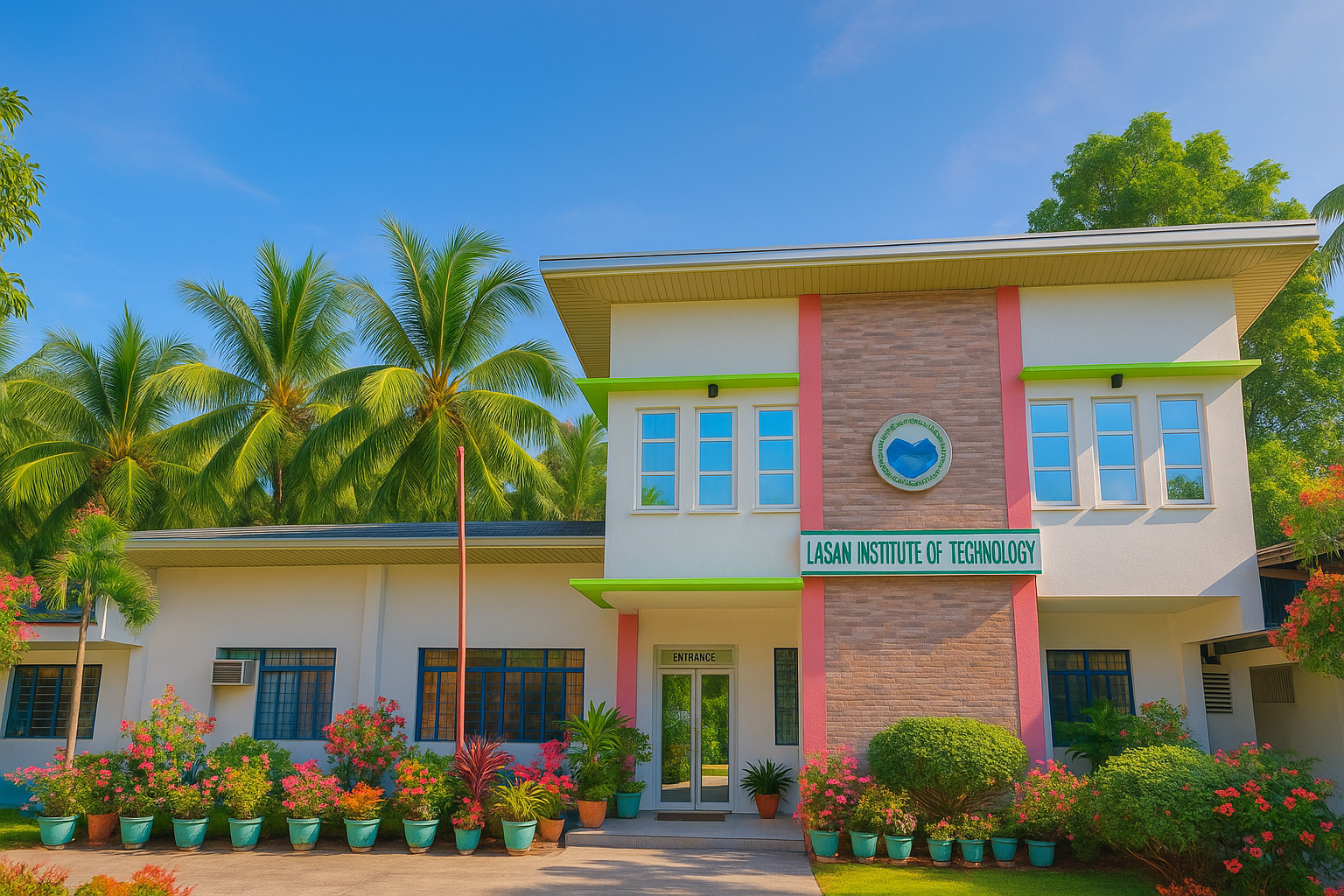The story of the Lasam Institute of Technology (LIT) traces back to humble beginnings in the quiet town of Lasam, Cagayan. It all started on August 2, 1968, when a simple barrio high school was established in Nabannagan West. With no permanent building of its own, the school operated in a borrowed facility, guided by its lone teacher, Mr. David Tamayao. The school’s early development was overseen by Mr. Isaias Aguinaldo, marking the first steps of what would eventually become a respected technical-vocational institution.
In 1973, recognizing the need for more practical and skills-based education, the school was converted into the Western Cagayan Vocational High School by virtue of Republic Act No. 3431. This change signified a growing focus on vocational training and laid the foundation for its future identity.
As the institution grew, it acquired a 16-hectare property—a mix of purchased land and generous donations from the local community—which allowed it to expand both its infrastructure and its reach. In 1988, the school was renamed the Lasam National Agricultural School (LNAS) through Republic Act No. 6665. This transition reflected a stronger emphasis on agriculture, one of the primary livelihoods in the region.
A major turning point came in 1997, when the Technical Education and Skills Development Authority (TESDA) took over its administration. This ushered in a new era of technical-vocational training, with the school offering a variety of National Certificate (NC) II programs, such as Agricultural Crops Production, Food Processing, Garments, and Computer Technology.
On May 22, 2007, the institution reached another milestone. Through Republic Act No. 9475, it was officially renamed the Lasam Institute of Technology. This marked its full transformation into a TESDA-administered institute of technology, ready to meet the growing demands of a modernizing workforce.
Since then, LIT has continued to evolve. Under successive administrators, it has introduced modern facilities and equipment for courses like Cookery, Automotive Servicing, Driving, Dressmaking, and Food and Beverage Services. Agricultural projects such as greenhouse farming and mushroom production were also introduced, strengthening ties with the local government and enhancing hands-on learning opportunities for students.
Today, after more than five decades of service, Lasam Institute of Technology stands as a testament to the power of education in rural development. From its modest beginnings in a borrowed classroom to its current status as a respected technical-vocational institution, LIT remains committed to empowering the youth and communities of Northern Cagayan through accessible, relevant, and quality skills training.

